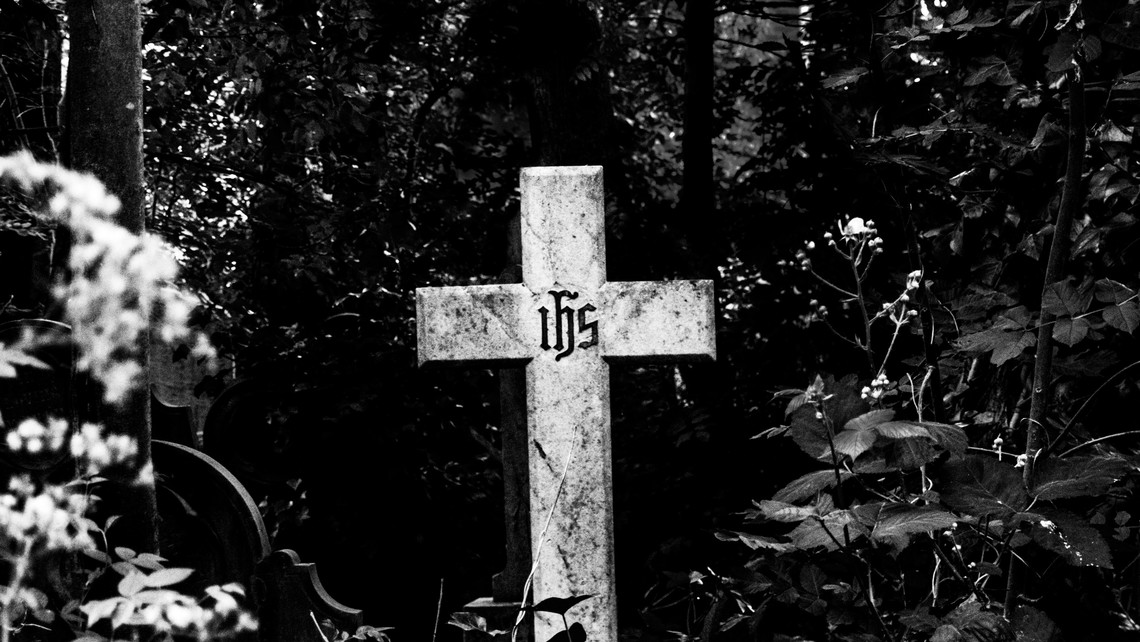
There was a long pause as the Pastor entered the funeral home to prepare the family and those who had gathered to pray the rosary. It was understandable to see many members of the parish community attend and pay their respects to the passing of a brother, friend, and for many, a genuine disciple of Jesus Christ. As members of the family prepared themselves to ask for our Blessed Mother’s intercession on the passing of their beloved son and brother, the Pastor reminded the faithful of an essential act of faith associated with the physical death of a loved one. “In baptism, we are brought into this world to encounter Jesus Christ, and at the end of our physical journey, we fulfill our baptismal promises in death where Heaven waits for those who chose Jesus Christ above all else.”
The matter and form of our Christian Journey
The Church recognizes the importance of creation because God is the author of life. Our Lord’s approach to creating man in His image and likeness involves a relationship between matter and form, matter which is the human body, and form, which is the soul that animates the body. This dual reality is critical to understand because it serves as the basis for how God created the opportunity for us to freely choose to develop a relationship with Him through His Son, Jesus Christ.
As we hopefully continue to mature in our relationship with Jesus Christ, our entire Christian journey is predicated on a celebration of our physical death to our eternal life in Christ in heaven. The importance of preparing for a good death stems from the moment of our conception and God’s intention to love us unconditionally. Our responsibility is to reciprocate that love, first to God the Father and then to our brothers and sisters in Jesus Christ.
The practice of our Catholic faith involves a continual development of our relationship with Jesus Christ. It is meant to prepare us for the moment when the physical reality of our body ceases, and our spiritual body and soul are united with our Lord in heaven. Hence, when someone is either preparing for death or has died, the journey toward our Christian end is positive because to live is Christ and to die is gain.[1] The Catechism of the Catholic Church reminds us through Baptism that the Christian has already died with Christ sacramentally to live a new life; and if we die in Christ’s grace, physical death completes this dying with Christ and so completes our incorporation into him in his redeeming act.[2]
The gift of our Christian Burial
Our identity as children of God must never be forgotten because our image is God’s image of us. We maintain this image, albeit in spiritual form, in heaven if our life conforms to the life of Jesus Christ. When a person passes from earthly life and hopefully toward an eternal life with God, it signifies recognition of the honor, respect, and charity afforded him as a child of God. The Catechism of the Catholic Church reminds us that:
The bodies of the dead must be treated with respect and charity, in faith and hope of the Resurrection. The burial of the dead is a corporal work of mercy; it honors the children of God, who are temples of the Holy Spirit.[3]
The day of our death signifies our relationship with Christ and parallels his life, primarily through his Paschal Mystery which involves his life, death, resurrection, and ascension to heaven. Our death signifies hope. This is why the act and rite of Christian burial is a solemn and reverent affirmation of our life with Jesus Christ because, as mentioned earlier, we are called to die with Christ.[4]
The importance of our Christian Burial
In the book of Tobit[5], we encounter a beautiful corporal work of mercy of burying the dead, which signifies a proper treatment of the dead as part of the dignity of the human person. We are called to exercise charity for the dead because the physical body will be glorified when Jesus comes again; this is why the act of Christian burial is essential in the eyes of the Church.
When we die, we are no longer bound to the sacramental life. Our sacramental identity ends, and our new journey, God-willing, awaits. As the community gathers to celebrate, it is a celebration of a sacramental life lived on earth and a new life that awaits. The Holy Eucharist serves at the heart of Christian death because the Church intimately binds our death with the death of Christ through the celebration of the Holy Eucharist. In the Eucharist, the Church expresses her efficacious communion with the departed: offering to the Father in the Holy Spirit the sacrifice of the death and resurrection of Christ; she asks to purify his child of his sins and their consequences and to admit him to the Paschal fullness of the table of the Kingdom.[6]
The Church makes it a visible reality to express a commendation for the dying, which is part of the rite of Christian burial that signifies the person’s journey from death to new life;
By this final greeting, we sing for his departure from this life and separation from us, but also because there is a communion and a reunion. For even dead, we are not at all separated from one another because we all run the same course, and we will find one another again in the same place. We shall never be separated, for we live for Christ, and now we are united with Christ as we go toward him … we shall all be together in Christ.[7]






